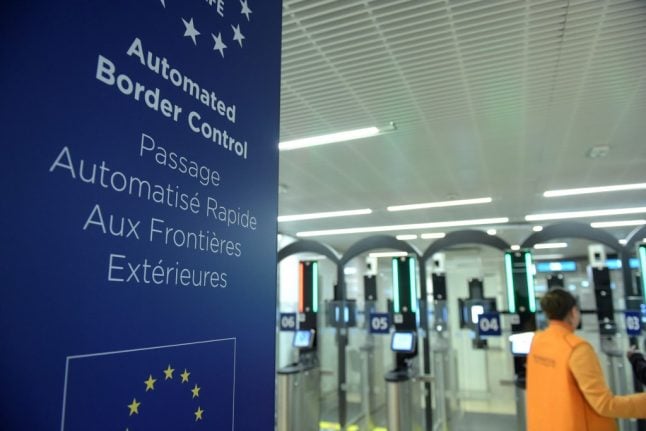Each year, over 1,500 young Americans pack their bags and head to Europe to teach English in public schools across France. But since France suspended all visa applications on March 17th, following the decision by the European Council to close the EU’s borders to limit the spread of COVID-19, applicants have been beset by stress and anxiety.
While France opened its borders to residents of 15 non-EU countries on July 1st, including Canada and Australia, travel is still restricted from countries with high infection rates such as the United States.
That decision has left many prospective English assistants in limbo. The French Consulate in the US is once again processing applications, but only for certain types of visas:
“Short and long stay student”, “Short stay spouse of French citizen”, “Short stay spouse of EU/EEA/Swiss – only for transit or meet spouse in France”, and “Long Stay Return visa – only for loss or theft of a French residence permit or expiring recepisse”.
EXPLAINED: How to apply for a visa to France
Applications for work visas will not be processed while American residents are not allowed to travel to France. With assistants due to begin in October, and the US still leading the world in daily infections, a deep anxiety has permeated this year’s cohort.
When the April deadline for application responses passed, Emma Mills, from Ohio, began to doubt whether the programme would be going ahead. But at the end of June, she learned that she had been accepted to teach in the Strasbourg area.
“When the shock wore off, I was ecstatic. I immediately texted my boss to pick up more hours at my job, I signed up for DoorDash to make extra money for moving expenses, and I even delayed my graduate school programme to next year,” she said.
Emma was disappointed with the lack of communication since then. Teaching Assistant Program in France (TAPIF), the French Embassy programme which places American language assistants in schools across France, sent an email to applicants on June 23rd, advising them not to make visa appointments or travel arrangements until further information becomes available.
Having heard nothing since, Emma, like many participants, only learned of the latest visa restrictions from her fellow assistants in a dedicated Facebook group.
“I would be absolutely devastated if the program gets cancelled,” said Suzanne Simpson. In two years, Suzanne will have surpassed the programme’s age limit.
“If France doesn’t allow Americans to participate, it might be the end of my only opportunity to ever live in France,” she said.
READ ALSO: What you need to know if you are planning on moving to France in 2020

A woman jogs in front of the French embassy in Washington. Photo: AFP
As the country with the third highest number of coronavirus-related deaths, Indian residents are also affected by the French entry ban. When Namrata Ghosh received an offer to teach English in Versailles, she quit her dream job teaching French in Kolkata, because she was required to give three months’ notice.
Now, she 's waiting to hear whether it was all for nothing.
“It's getting really anxious out here,” she said.
For others who are set to work as lecteurs, teaching English in French universities from September 1st, there is even less time to waste.
Hannah Marley was a language assistant this past year, and has a lecteur contract in a university in Valenciennes for September.
While others in her situation are able to renew their visas at their local prefecture in France, Hannah returned home to Memphis, Tennessee on March 15th, just as France was closing all non-essential businesses.
“I was worried it was only a matter of time until, one way or another, I couldn't return home. Based on the information I had at the time, I think I made the best decision I could,” she said.
Stuck in the US, she is currently unable to apply for a new visa.
“I deeply regret that I likely won't be able to return to France, though. That is a loss that will take some time to come to terms with,” she said.
The list of countries whose residents can travel to France will be reviewed every two weeks, but any change is predicated on signs those countries are making progress towards slowing the spread of the virus. Universities, meanwhile, have little idea of what the future holds, and are waiting and hoping their non-European recruits will be given permission to come to France.

A classroom in France. Photo: AFP
As well as feeling frustrated, many of those impacted recognise that the current measures are unavoidable.
“As an educator, the safety and well-being of my students and colleagues is always my top priority,” Emma Mills said, adding:
“Even if the ban is lifted and we are able to travel, I still might decide against participating in the program if I feel it is putting others at risk.”
Others are trying to see the positives, like Kelsey Dabrowski, who signed up for TAPIF because, after being offered a job teaching English as a second language in Atlanta, Georgia, her employer announced a hiring freeze.
“Even if I don't get to participate in TAPIF because of visa problems, the pandemic already threw a wrench into my job security. If I'm going to be anxious about what I'm doing for the next year either way, I'd rather have at least a slim possibility of going to France,” she said.



 Please whitelist us to continue reading.
Please whitelist us to continue reading.
Member comments